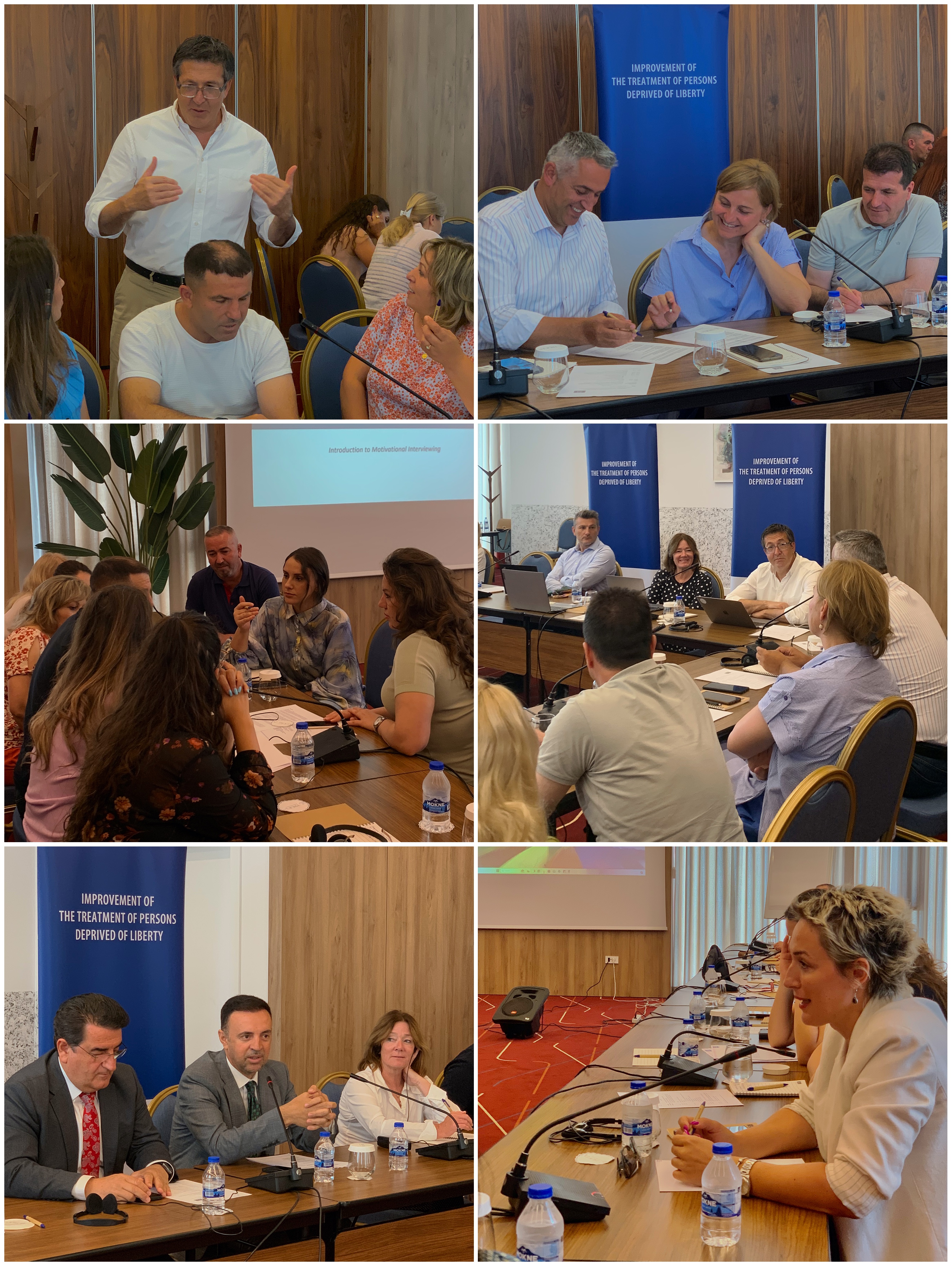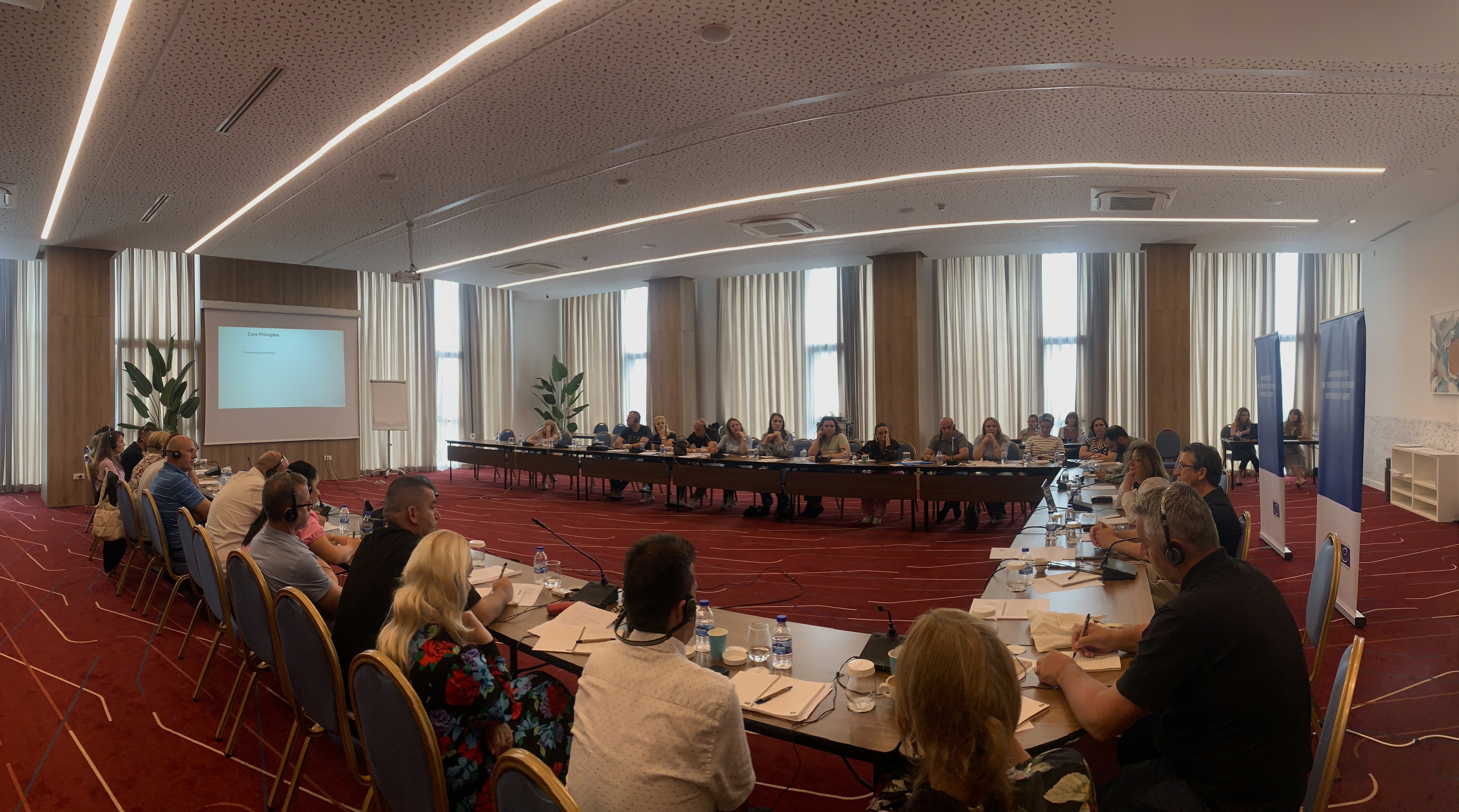Mental healthcare professionals and correctional staff should constantly strengthen their practical knowledge and skills and be aware of international standards and good practice to be able to provide appropriate treatment to persons deprived of liberty.
Therefore, a three-day training on psychosocial programmes and rehabilitation methods took place from 1 to 3 July in Kosovo* nearby Dubrava Prison, facilitated by two Council of Europe subject matter experts.
A total of 30 mental healthcare professionals and correctional staff from the Institute for Forensic Psychiatry of Kosovo (IFPK), Kosovo Correctional Services (KCS), Prison Health Department (PHD), and the Special Institute for Persons with Learning and Physical Disabilities (SIS) as well as representatives of the Kosovo Probation Service and civil society were acquainted with several techniques to assist them in their daily work. Through case studies the participants raised their practical knowledge and awareness of staff burnout, assessment of prisoners and persons in other closed institutions and subsequent treatment, discharge and release planning, motivational interviewing and de-escalation techniques, and patient self-care and education.

The activity was organized under the auspices of the Council of Europe project “Improvement of the treatment of persons deprived of liberty”.
* All references to Kosovo, whether to the territory, institutions, or population, in this text shall be understood in full compliance with United National Security Council Resolution 1244 and without prejudice to the status of Kosovo.
The participants also shared their experiences and learned from one another, whilst sharing institutional best practices in the process and strengthening the cooperation between their institutions.
As a sign of appreciation of the Council of Europe’s work and good partnership, the Director General of KCS, and the Heads of the PHD and the SIS expressed their gratitude to the Council of Europe for all the efforts and dedication in improving the skills and knowledge of their staff for a better treatment of persons in closed institutions.






